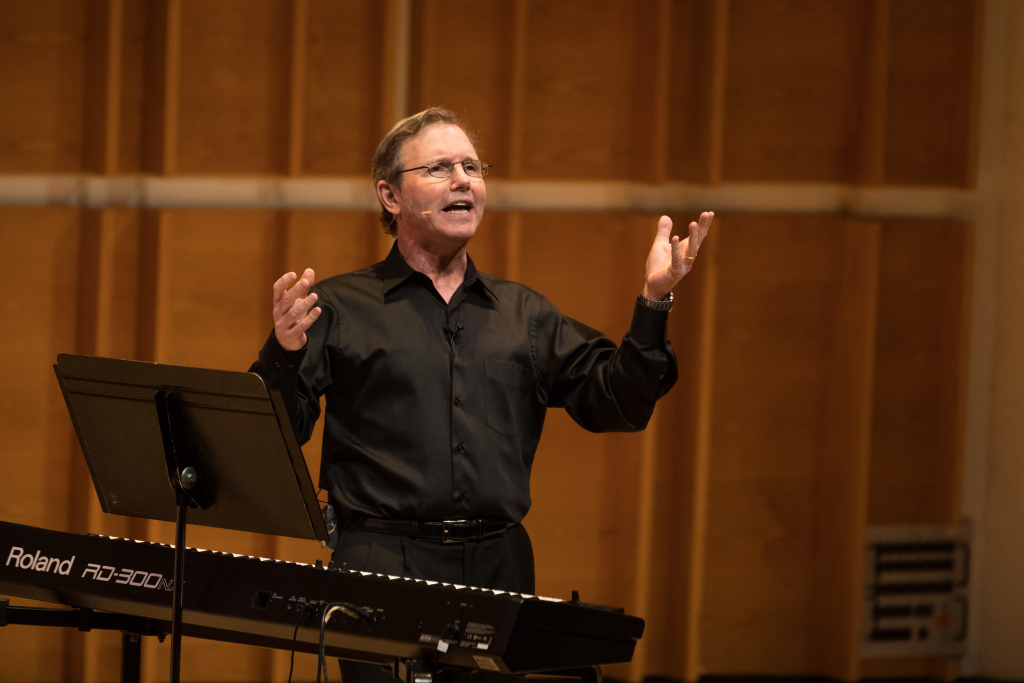Why do music critics favor some genres over others? What is it about the classics that made them so great? Rob Kapilow has spent the last 25 years answering these questions in his program, “What Makes it Great?”
BJU will be hosting a virtual performance of “What Makes it Great?” with Rob Kapilow at 7:30 p.m. on Oct. 8. Students only will be allowed to attend in person, but others are invited to join the BJU community via pay-per-view access on the Bob Jones University Facebook page. Access will be $14.99 per connection.
Inspired to Listen
As an undergraduate student at Yale University, Kapilow enrolled in an art history course. “Like many people feel about music, I simply knew what paintings I liked and what paintings I didn’t like, but I had no real idea of how to look at a painting,” he said. “The class showed me everything I had missed in art and taught me how to look at a painting from the inside out. It taught me the difference between looking and seeing.”
He wanted to do something similar with music. Said Kapilow: “I wanted to help people learn what it was like to really listen to a piece of music by focusing for an hour on a single piece of music. If my art history class taught me the difference between looking and seeing, ‘What Makes it Great?’ is designed to teach people the difference between hearing and listening.”
Structured for Interaction
The program is split into two sections. First, Kapilow will work through a piece of music — this year a selection from Beethoven’s Piano Trio No. 7 in B-flat Major, also known as the Archduke Trio. He will look at how the composer used the musical toolbox to achieve the desired effect and how changing one or two minor details changes the entire piece.
The second portion of the program is an interactive question and answer time. This year, due to COVID-19, the first portion will be prerecorded, and the second portion will be conducted over video call.
“On the simplest level, I hope that the program will provide a point of entry into a kind of music that I assume is not what most students are currently listening to,” said Kapilow. “That they will walk out with a new pair of ears. A new way of listening.
“And on the most profound level, I hope that the program will help people learn what it is like to truly pay attention, to truly listen. In the incredibly polarized, divided world we live in, there can be no more important gift than the ability to listen.”








